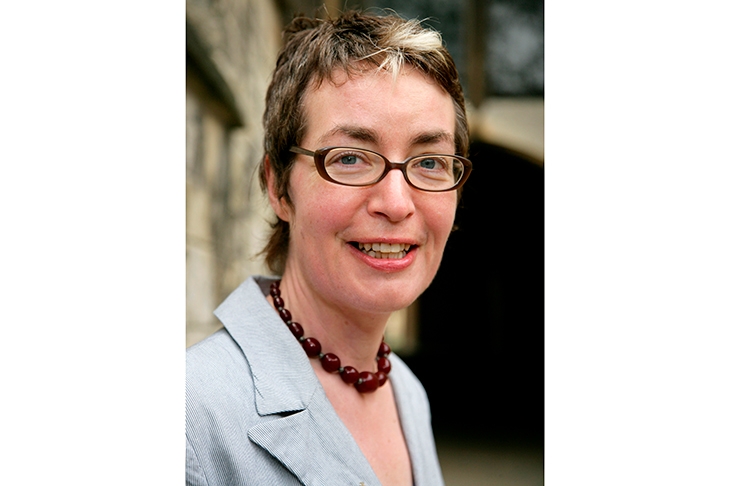Kate Clanchy is an extraordinary person. She is a veteran of 30 years’ teaching in difficult state schools, as well as an acclaimed poet (awarded an MBE in 2018 for services to literature) who has nurtured a generation of successful young migrant writers.
In 2006 she was one of the judges for the Foyle young poets of the year award. Seven years later, seeing how the winners were scything through Oxbridge and networking ‘like an artsy version of the Bullingdon Club’, she wanted the same opportunities for her own pupils, ‘not just the poetry, but the sense of entitlement’. She was teaching at a comprehensive in east Oxford, a generally unloved institution, ‘record-breakingly under-subscribed’, where more than 50 languages were spoken. Some pupils were born in Britain to parents from Commonwealth countries, some were migrants from eastern Europe or South America and others were refugees from war zones, including Iraq and Afghanistan. Clanchy describes the school as ‘a gathering point for one of the most mixed communities ever to function on
the earth’.
She was sad but resigned that none of her poetry group won Foyle prizes that first time, — until she scrutinised photographs of the winners and realised that they were all white, many, she discovered, from boarding schools. She concluded that they shared a landscape of aproned, cake-making grandmothers, deck chairs and copies of the National Geographic. ‘This was the landscape that was recognised as poetic.’
Clanchy complained and lobbied and continued to work with her pupils, convinced that their loss of country, and in many cases close family members, could be a gain to them as poets. The shock of dislocation ‘made them listen to their inner voice’. And she was proved resoundingly to have been right. In the past few years her pupils have won awards across the board, including the Betjeman prize as well as the Foyle young poets.
Some Kids I Taught and What They Taught Me is a collection of essays that conjures up the cataclysmic disorder of life in a British secondary school, with the odds stacked heavily against idealistic teachers, not only because of the chaotic backgrounds of the students but as a result of Ofsted demands and the shifting dogmas of politicians.
The author begins by talking about her profession, describing the ‘terrifying confidence trick’ of classroom discipline as a ‘series of stinging humiliations and painful accidents and occasional sublime flights which leave you either crippled or changed’. After decades of teaching she can now ‘look at the back row in that indefinable teacherly way that brings quiet’.
Stories are at the heart of this book, ‘long-stewed’ stories with a jostling, overlapping crowd of characters: the young people Clanchy has taught, their families and her fellow teachers. Among dozens of others there’s Royar, the son of a Kurdish widow, ‘with the honour of a family on his shoulders in a country which doesn’t know what honour means’, who compliments a counsellor on her blouse and is reported for sexual harassment. There’s the menacing, resentful Cheyenne, showered with presents by her errant father and stamped through with poverty, who has more consumer goods than Clanchy’s own children, ‘more calories and less nutrition; more cash and less financial security’. There’s the beguiling Nepalese Akash, out and proud at school, who ‘does not have the words even to begin to explain to his mother what he is’. And there’s Priti, from Bengal, and her taller cousin Priya, who write a novel about an American summer camp. When Clanchy suggests that they should write instead about their memories of Bengal, Priya replies: ‘We are not in books.’
The notion of not belonging, of being excluded, recurs constantly. It extends to the refugees, to the troubled, to those with learning difficulties and also to bright pupils deprived of prizes by schools that prefer to reward those who have simply made progress. ‘Teachers underestimate how hard it is to be clever,’ Clanchy’s friend Jeannie laments. Her daughter Annie ‘works bloody hard, on her own, mostly. She pays a price. She’s never going to get the popularity prize. Where’s her maths prize?’
Clanchy’s venom is reserved for the church. She rails repeatedly against Catholic schools and scornfully refers to those Muslims who choose to send their children to them as being attracted ‘by the general anti-sex vibe’. Nevertheless, Some Kids I Taught and What They Taught Me is full of treasures. Clanchy believes in happiness and success and retrieves much that is cheerful from the tangled messes of her pupils’ lives. She says that she went into teaching because she wanted to change the world, and that a state school seemed the best place to start. It’s clear from this book that she has changed the world for a significant number of young people.
Don’t be put off by its ghastly title. Read it. It will make you a better person, kinder and more understanding.






Comments